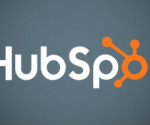The Email Marketing Renaissance
 I remember in the 90s when people were delighted to simply receive an email, the novelty factor was huge, and open rates were high (often upwards of 70%).
I remember in the 90s when people were delighted to simply receive an email, the novelty factor was huge, and open rates were high (often upwards of 70%).
Throughout the 2000s as technology developed, and with it spam techniques, this number began to dip, as we became accustomed to receiving email — much of it unsolicited.
Many consumers were rightly scarred by this experience and began to equate email marketing with spam. They perceived email marketing as the online equivalent of receiving junk mail through the post. Unsurprisingly, open rates continued to plummet throughout this period to below 20%.
Some predicted the death of email and many continue to so do, but recent numbers tell a different story — in fact, over the last two years email open rates have crept back up to a much healthier 33%. From my time at Chill Insurance, I know just how successful email marketing can be. Our lead generation strategy was built on TV advertising, AdWords, email marketing and SEO. And this 2014 study from McKinsey highlights the success of email (and organic search) versus social media for customer acquisition growth.
I believe an email marketing renaissance is upon us, and there are three factors driving this:
Falling organic reach of social media
Many organisations spent years amassing online communities on social media, only to be told that their posts would now reach a much smaller audience. From reaching 10-15% of fans in late 2013, Facebook page owners can now expect their content to be seen by a measly 1-5% of their community per post — unless they ‘pay to play.’ Social@Ogilvy believe it’s only a matter of time before Facebook organic reach hits zero.
Unsurprisingly, companies have begun to rethink their approach after Facebook changed the rules. Many are now moving towards owned media, such as their blog and email marketing, where as its name implies they have much more control and can gain more information about their communities. Only last week I noticed the BBC promoting its daily email newsletter (my tweet generated some great discussion too). This is a change that affects organisations big and small.
Demise of Google Reader
When Google Reader was closed down in 2013, it forced people to set up new RSS readers or find other ways to stay in touch with their favourite news sites and blogs. Savvy media companies and bloggers, not wanting to lose a significant portion of their traffic, began installing email subscription plugins, such as MailChimp or Jetpack so their readership could be notified as soon as a new post was published.
When you use a RSS reader, once again you’re at the mercy of a third party that could move the goal posts on a whim or be shut down as we saw in the case of Google. But when you subscribe via email to a blog, you’ve created a direct relationship with the publisher. This has contributed massively to what I believe will be another golden age of email marketing.
(Email) marketing has become smarter
While consumers have become a lot smarter about email marketing over the past 20 years — so too have marketers. We now have email automation, segmentation and personalisation at our fingertips. Some of the tools available are incredible and enable companies to communicate seamlessly with prospects and customers via email, as they are nurtured along the marketing funnel.
Good marketers know that sending an email to someone who’s not interested is a waste of time for everyone involved (and can harm their Sender Score). But they also know that if you target the right person at precisely the right time with the right content you’re going to create a win-win situation.
While my spam folder is filled to the brim with the usual mix of emails from shady companies selling dubious body enhancement pills, my inbox paints a different picture. The emails which make it there are highly personalised, timely and relevant to my interests – they are a delight to receive. Quora, Amazon, HubSpot, Lovin’ Dublin and Shane O’Leary (an excellent blogger from Ireland) are just a handful of examples, and deserve credit for their email marketing efforts.
I’m excited that email marketing has the chance to right the wrongs of the noughties and realise its massive, if unfulfilled potential. If you don’t currently use email marketing, make 2015 the year to change that. Do you think we’ll see an email marketing renaissance in the next 12 months?













